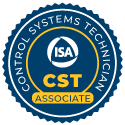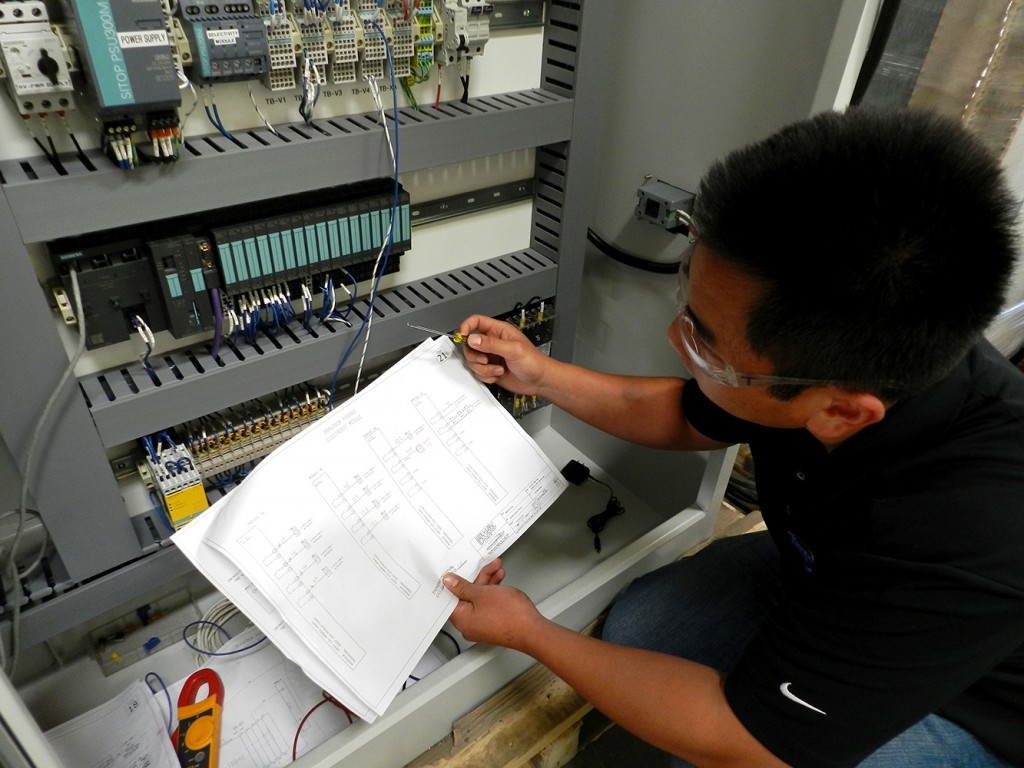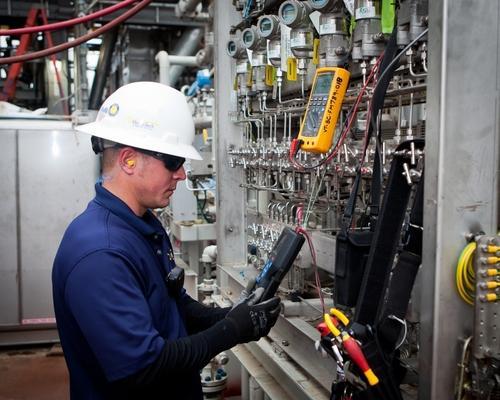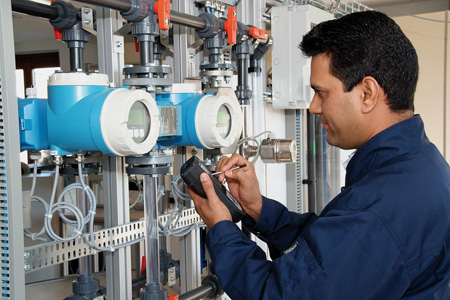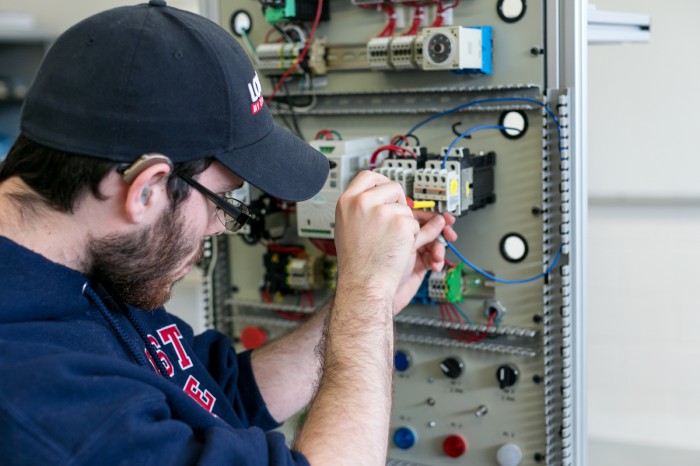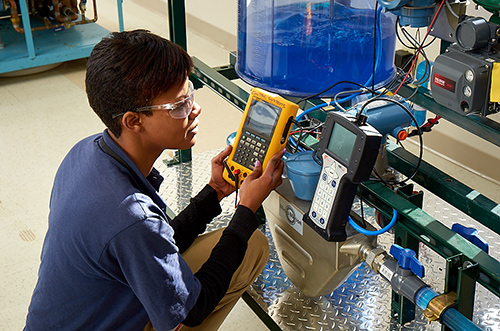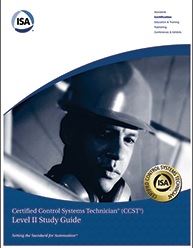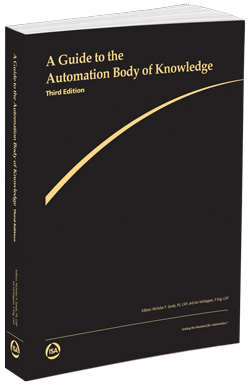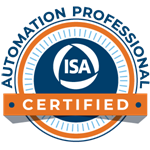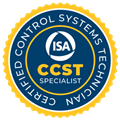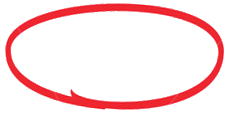
Engineering and Technology Online Studies
CCST - Certified Controls System Technician
CCST certifications are available at three levels, and each level requires
the successful completion of an examination. The CCST examination is
only one requirement for certification. The candidate must also meet the
minimum requirements comprised of work experience and education.
Complete documentation of work experience and education are a MUST
to fulfill the following requirements to qualify for each level of testing. The
work experience and educational periods may not overlap when compiling
the total number of years for a level.
The CCST program is a two-fold certification: (1) all applicants must meet
the requirements for the level of testing for which he/she applies and (2)
pass the examination. If proper documentation is not provided then the
applicant will not be certified. In order to test again, the applicant must
reapply and resubmit the application fee.
Visit the ISA (International Society of Automation) website:
https://www.isa.org/certification/ccst
Qualifications and Experience
A five-year total of education, training, and/or experience.
The following elements may be used to satisfy this requirement:
- A registered apprenticeship in an instrumentation, measurement and control, electronics, electrical,
and/or mechanical program, if applicable. - Academic degree (or equivalent) in a related technology area, to a maximum of four years.
- Successfully completing the CST Associate Recognition Program (a maximum of one year).
- A minimum of one year related work experience.
A seven-year total of education, training, and/or experience.
The following elements may be used to satisfy this requirement:
- A registered apprenticeship in an instrumentation, measurement and control, electronics, electrical,
and/or mechanical program if applicable. - Academic degree (or equivalent) in a related technology area, to a maximum of four years.
- Related work experience, including at least two years in instrumentation/measurement and control.
A thirteen-year total of education, training, and/or experience.
The following elements may be used to satisfy this requirement:
- A registered apprenticeship in an instrumentation, measurement and control, electronics, electrical,
and/or mechanical program, if applicable. - Academic degree (or equivalent) in a related technology area, to a maximum of four years.
- Related work experience, including at least five years in instrumentation/measurement and control.
CCST® Performance Domains and Test Specifications
The CCST exams will cover four major domains that have been organized based on the findings in the CCST job task analysis study.
The CCST Level I, II, and III exams are weighted by a varying number of questions per domain. The percentage of questions per domain is based
on each domain's relative importance and criticality in terms of what control systems technicians are expected to know while performing their jobs,
by level. The following tables indicate the percentage of questions appearing on the exams by level as they relate to each domain for the current
and new versions of the exams:
| Specifications by Domain 2019 | Level I Average % | Level II Average % | Level III Average % |
| I. Calibration, Maintenance, Repair, Troubleshooting | 75% | 64% | 20% |
| II. Project Start-up, Commissioning, Loop-check, Project Organization, Planning | 15% | 19% | 14% |
| III. Documentation | 10% | 11% | 17% |
| IV. Administration, Supervision, Management | N/A | 6% | 49% |
CCST® Exam Task List Reference Document
Not ready for the CCST - apply for the CST Associate Recognition Certificate:
